Whirlpool Washer Wont Start: Troubleshooting Tips to Fix It
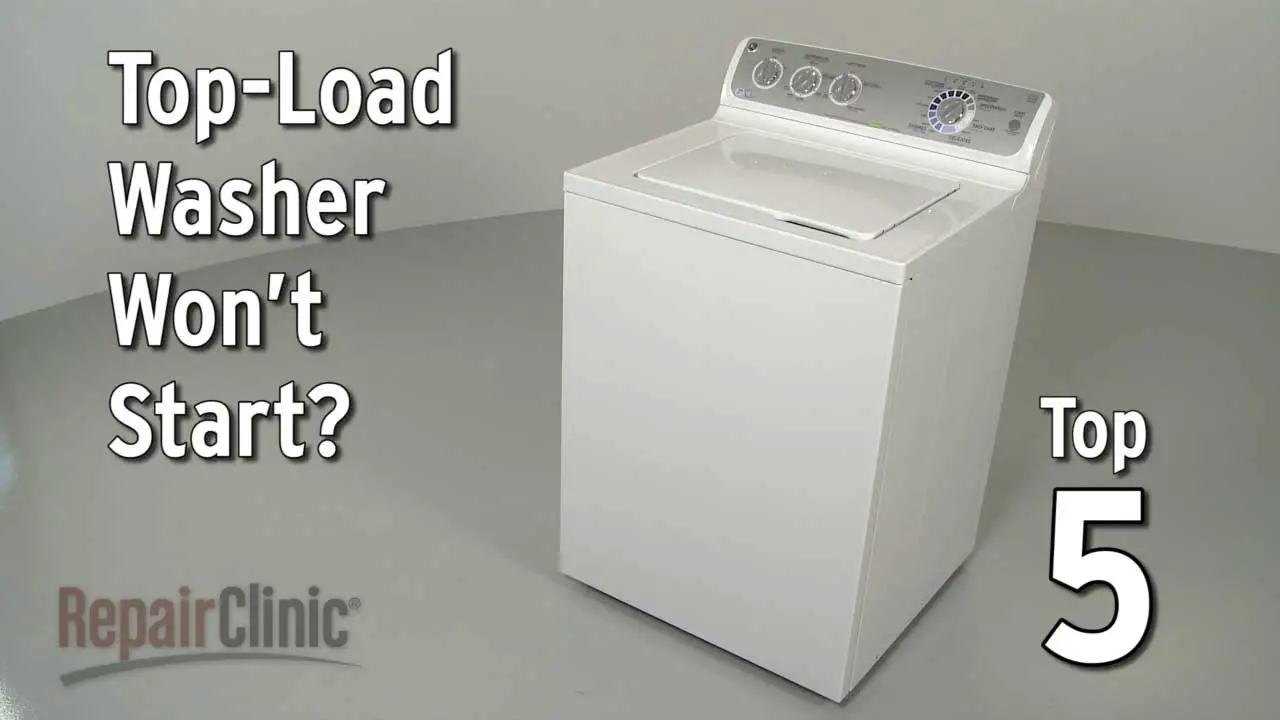
If your Whirlpool washer won’t start, check the power supply and door latch. Ensure the control panel isn’t locked.
A Whirlpool washer failing to start can disrupt your laundry routine. First, verify the power supply by checking the outlet and ensuring the washer is plugged in securely. Next, inspect the door latch; the machine won’t start if the door isn’t closed properly.
Also, see if the control panel is locked, which can prevent the washer from starting. Simple troubleshooting steps like these often resolve the issue, saving you a service call. Regular maintenance and understanding common problems can keep your Whirlpool washer running smoothly. If the problem persists, consult the user manual or contact customer service for further assistance.
Common Issues
Experiencing issues with your Whirlpool washer not starting can be frustrating. Understanding common problems can help diagnose and fix the issue quickly. Let’s explore two frequent issues: power supply problems and door lock malfunctions.
Power Supply Problems
Power supply issues are a common reason for a Whirlpool washer not starting. Here are some steps to check:
- Ensure the washer is plugged in properly. A loose plug can cause issues.
- Check the outlet with another appliance. This helps verify if the outlet works.
- Inspect the power cord for any visible damage. A damaged cord needs replacement.
- Verify if the circuit breaker is tripped. Reset it if necessary.
Power supply issues are usually easy to fix. Regularly check these aspects to avoid future problems.
Door Lock Malfunctions
A malfunctioning door lock can prevent the washer from starting. Here’s how to address it:
- Ensure the door is closed properly. An open door will stop the washer.
- Inspect the door lock mechanism for any visible damage.
- Clean the door lock area. Dirt and debris can cause lock issues.
- Test the door lock switch with a multimeter. Replace if it’s faulty.
Door lock issues are critical for washer safety. Regular maintenance can prevent these malfunctions.
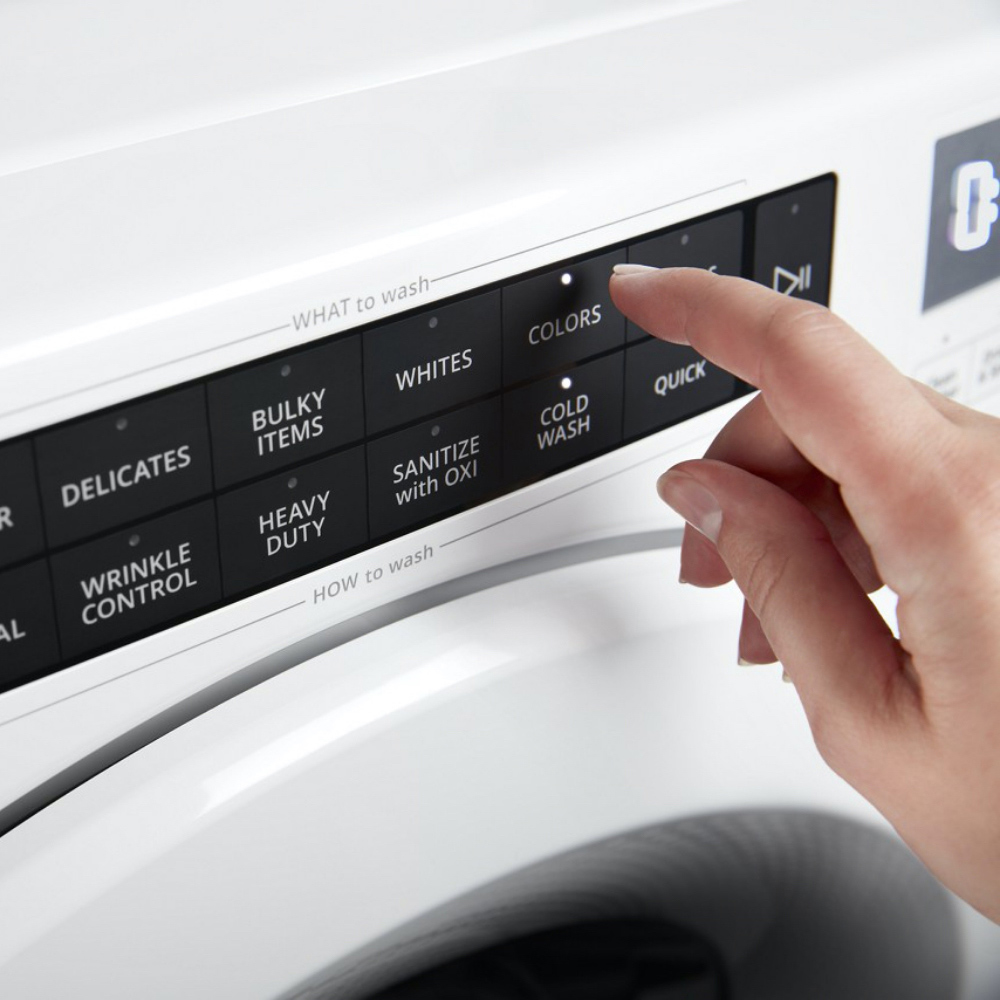
Credit: www.homedepot.com
Checking Power Supply
Is your Whirlpool washer not starting? The first step is to check the power supply. Ensuring your washer has power can solve many issues.
Inspect Power Cord
Begin by checking the power cord of your Whirlpool washer. Ensure it is securely plugged into the outlet. Sometimes, the cord may be loose.
Examine the cord for any visible damage. Look for cuts, frays, or burns. A damaged power cord can prevent the washer from starting. If you see any damage, replace the cord immediately.
Examine Electrical Outlet
Next, check the electrical outlet where your washer is plugged in. Unplug the washer and plug in another device. See if the device works.
If the device doesn’t work, the outlet might be faulty. You can use a multimeter to test the outlet. Ensure it is delivering power properly.
If the outlet is not working, reset the circuit breaker. Sometimes, the outlet might be connected to a switched outlet. Ensure the switch is turned on.
| Step | Action |
|---|---|
| 1 | Check power cord for damage. |
| 2 | Ensure cord is securely plugged in. |
| 3 | Test electrical outlet with another device. |
| 4 | Use a multimeter to check outlet power. |
| 5 | Reset circuit breaker if necessary. |
By following these steps, you can quickly determine if the issue is with the power supply.
Door Lock Mechanism
The door lock mechanism in your Whirlpool washer ensures safety. This system prevents the washer from operating with an open door. A faulty door lock means your washer won’t start. Let’s explore how to fix this issue.
Test Door Latch
First, you need to test the door latch. Here’s a step-by-step guide:
- Unplug the washer for safety.
- Locate the door latch on your washer door.
- Check for any visible damage.
- Use a multimeter to test the latch’s continuity.
If the latch doesn’t show continuity, it’s faulty. A working latch is crucial for starting the washer.
Replace Door Switch
If testing shows the latch is defective, replace the door switch. Follow these steps:
- Unplug the washer again for safety.
- Remove the screws securing the door switch.
- Disconnect the wires from the old switch.
- Connect the wires to the new switch.
- Secure the new switch with screws.
Ensure the new switch is properly installed. This will resolve the starting issue.
| Step | Description |
|---|---|
| 1 | Unplug the washer |
| 2 | Locate and inspect the door latch |
| 3 | Test latch with a multimeter |
| 4 | Replace the door switch if needed |
Control Panel Issues
Facing issues with your Whirlpool washer not starting? The control panel could be the culprit. Control panel issues can disrupt the entire washing process. Let’s explore how to tackle these problems.
Reset Control Board
Sometimes, the control board needs a reset to function properly. Follow these steps:
- Unplug the washer from the power source.
- Wait for about one minute.
- Plug the washer back in.
- Press the Power button to turn it on.
This simple reset can solve many control panel issues.
Check Error Codes
Error codes can help diagnose the problem quickly. Follow these steps to check for error codes:
- Press and hold the Start button for three seconds.
- Look at the display for any error codes.
- Refer to the user manual to understand the code.
Common error codes and their meanings:
| Error Code | Meaning |
|---|---|
| F01 | Electronic control board issue |
| F20 | Water inlet problem |
| F21 | Drainage issue |
Understanding these codes can help you fix the problem faster.
Water Supply Problems
One common issue with a Whirlpool washer is water supply problems. Without proper water flow, your washer won’t start. This section helps diagnose and fix water supply issues.
Inspect Water Hoses
First, check the water hoses connected to your washer. Look for kinks or bends. These can restrict water flow. Ensure hoses are securely attached to the water supply faucets.
- Turn off the water supply before inspecting.
- Disconnect the hoses from both the washer and the faucets.
- Look for any visible damage or blockages.
- If damaged, replace the hoses with new ones.
- Reconnect hoses and turn on the water supply.
Once reconnected, turn on the faucets and check for leaks. Tighten connections if needed.
Examine Inlet Valve
The inlet valve controls water entry into your washer. A faulty valve can prevent the washer from starting.
- Unplug the washer from the power outlet.
- Locate the inlet valve at the back of the washer.
- Disconnect the water hoses attached to the valve.
- Use a multimeter to check the valve’s electrical continuity.
- If the valve shows no continuity, replace it.
Reattach hoses and plug in the washer. Test the washer to see if it starts.
:max_bytes(150000):strip_icc()/Troubleshooting-whirlpool-cabrio-washer-problems-repairs-2147317_final-cd6987d37f5f4ef883aacfb43622194d.png)
Credit: www.thespruce.com
Motor And Drive System
Understanding the motor and drive system of your Whirlpool washer can solve many issues. The motor and drive system power the washing cycle. If your washer won’t start, the problem might lie here. Let’s explore two critical components: motor connections and the drive belt.
Check Motor Connections
First, ensure the washer is unplugged. Safety is crucial.
Open the back panel of the washer. Look for the motor connections. These are wires that connect the motor to the control board.
Check if the wires are securely attached. Loose or disconnected wires can cause the washer to not start.
If the wires are damaged, replace them. Damaged wires can lead to power issues.
Use a multimeter to test the electrical continuity. Set the multimeter to the lowest ohms setting. Touch the probes to the motor terminals. If the reading is zero or infinite, the motor may be faulty.
Test Drive Belt
Next, examine the drive belt. The drive belt connects the motor to the drum.
Locate the drive belt at the bottom of the washer. Check for any signs of wear or damage.
If the belt is loose or broken, it needs replacement. A worn-out drive belt can prevent the drum from spinning.
To replace the drive belt, follow these steps:
- Remove the old belt by sliding it off the pulleys.
- Place the new belt around the motor pulley first.
- Stretch the belt over the drum pulley.
- Ensure the belt is snug and aligned properly.
After replacing, check if the drum spins freely. A properly installed drive belt should move smoothly.
| Component | Action |
|---|---|
| Motor Connections | Ensure wires are secure and undamaged. Test with a multimeter. |
| Drive Belt | Check for wear. Replace if loose or broken. |
By checking the motor connections and testing the drive belt, you can often solve the issue of a Whirlpool washer that won’t start.
Cycle Settings
Understanding your Whirlpool washer’s cycle settings can help solve starting issues. Each setting controls different functions. Incorrect settings can prevent your washer from starting.
Verify Cycle Selection
First, confirm the selected cycle matches your laundry needs. Common cycles include Normal, Delicate, and Heavy Duty. Incorrect cycle selection can cause problems.
- Check the control knob is properly aligned with the desired cycle.
- Ensure the cycle is suitable for the load size and fabric type.
If the washer is still not starting, try a different cycle. This helps determine if the issue is with a specific setting.
Adjust Timer Settings
The timer must be set accurately for the washer to start. An improperly set timer can lead to delays or no start.
- Turn the timer knob to the correct position.
- Ensure the timer is not stuck or broken.
If the timer seems faulty, you may need to replace it. You can check the timer’s functionality by turning it through a full cycle.
Correctly setting the cycle and timer can resolve many starting issues. These simple checks can save you time and frustration.
Professional Help
When your Whirlpool washer won’t start, it can be frustrating. Sometimes, you need professional help to fix the problem. Here’s when to call a technician and how to choose the right repair service.
When To Call A Technician
Some issues need an expert. Call a technician if:
- The washer makes strange noises.
- It smells like something is burning.
- Water is leaking from the machine.
- The washer doesn’t turn on at all.
If you notice any of these signs, get professional help quickly. Delaying can make the problem worse.
Choosing A Repair Service
Choosing the right repair service is important. Here are some tips:
| Factor | Why It Matters |
|---|---|
| Experience | Experienced technicians know how to fix Whirlpool washers. |
| Reviews | Read customer reviews to find a reliable service. |
| Cost | Compare costs to get the best deal. |
| Warranty | A warranty ensures the repair lasts. |
Check these factors before choosing a service. It ensures you get the best help for your washer.

Credit: www.youtube.com
Frequently Asked Questions
Why Is My Whirlpool Washing Machine Not Starting?
Your Whirlpool washing machine might not start due to a faulty power supply, door latch, or control panel issue. Check these components.
Why Won’t My Washer Start When I Press Start?
Your washer might not start due to power issues, a tripped circuit breaker, or a faulty door latch. Check these first.
How Do I Reset My Whirlpool Washing Machine?
To reset your Whirlpool washing machine, unplug it for one minute. Plug it back in and open and close the door six times within 12 seconds.
Why Is My Whirlpool Washer Not Starting Just Clicks?
Your Whirlpool washer might not start due to a faulty door latch, control board issue, or power supply problem. Check connections and inspect the door latch for damage.
Why Won’t My Whirlpool Washer Start?
Your Whirlpool washer may not start due to power issues, door latch problems, or a faulty control board.
How Do I Reset My Whirlpool Washer?
To reset, unplug the washer for 1 minute, then plug it back in.
What Causes Whirlpool Washer To Not Turn On?
Common causes include a tripped circuit breaker, faulty power cord, or a defective door switch.
How To Check Whirlpool Washer Door Latch?
Inspect the door latch for damage and ensure it clicks securely when closed.
Conclusion
Fixing a Whirlpool washer that won’t start can be straightforward. Check power, lid switch, and control settings. Follow these simple steps to troubleshoot and resolve common issues. Regular maintenance can prevent future problems. Keep your washer in top condition and enjoy hassle-free laundry days.

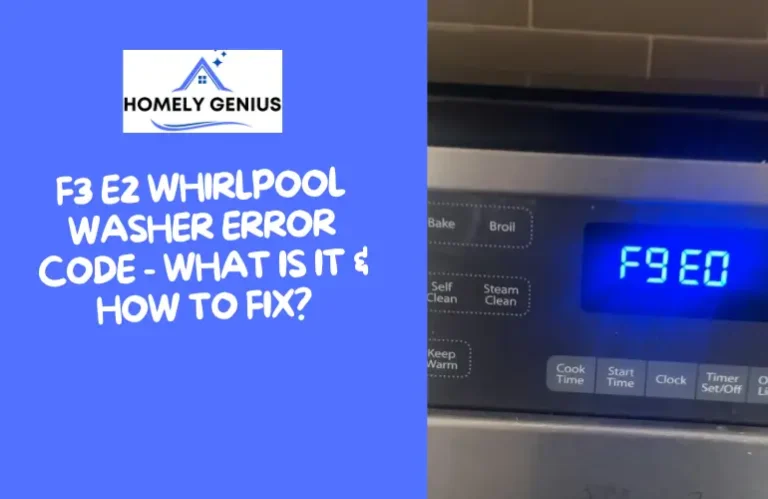
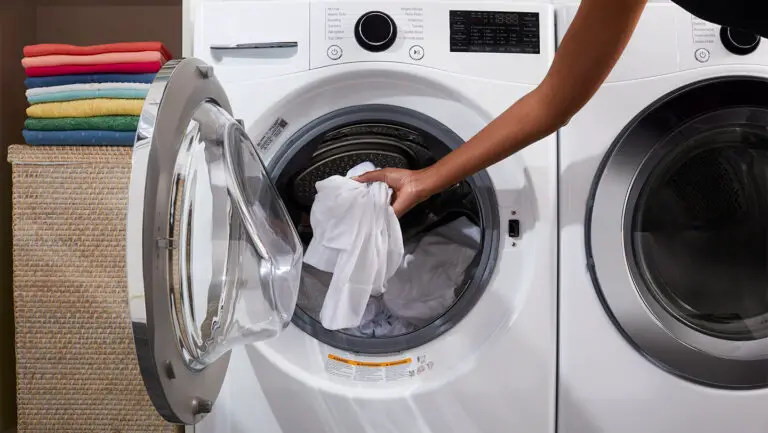

![Kenmore Washer Lid Lock Bypass [A Comprehensive Guideline]](https://homelygenius.com/wp-content/uploads/2023/12/Kenmore-Washer-Lid-Lock-Bypass-768x499.webp)
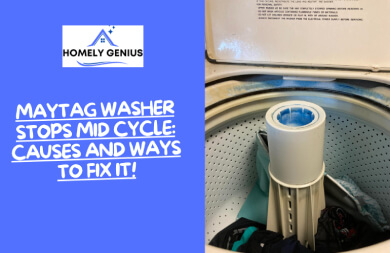
![Whirlpool Washer Stuck on Rinse [6 Possible Causes & Fixes]](https://homelygenius.com/wp-content/uploads/2023/09/whirlpool-washer-stuck-on-rinse-1.jpg)